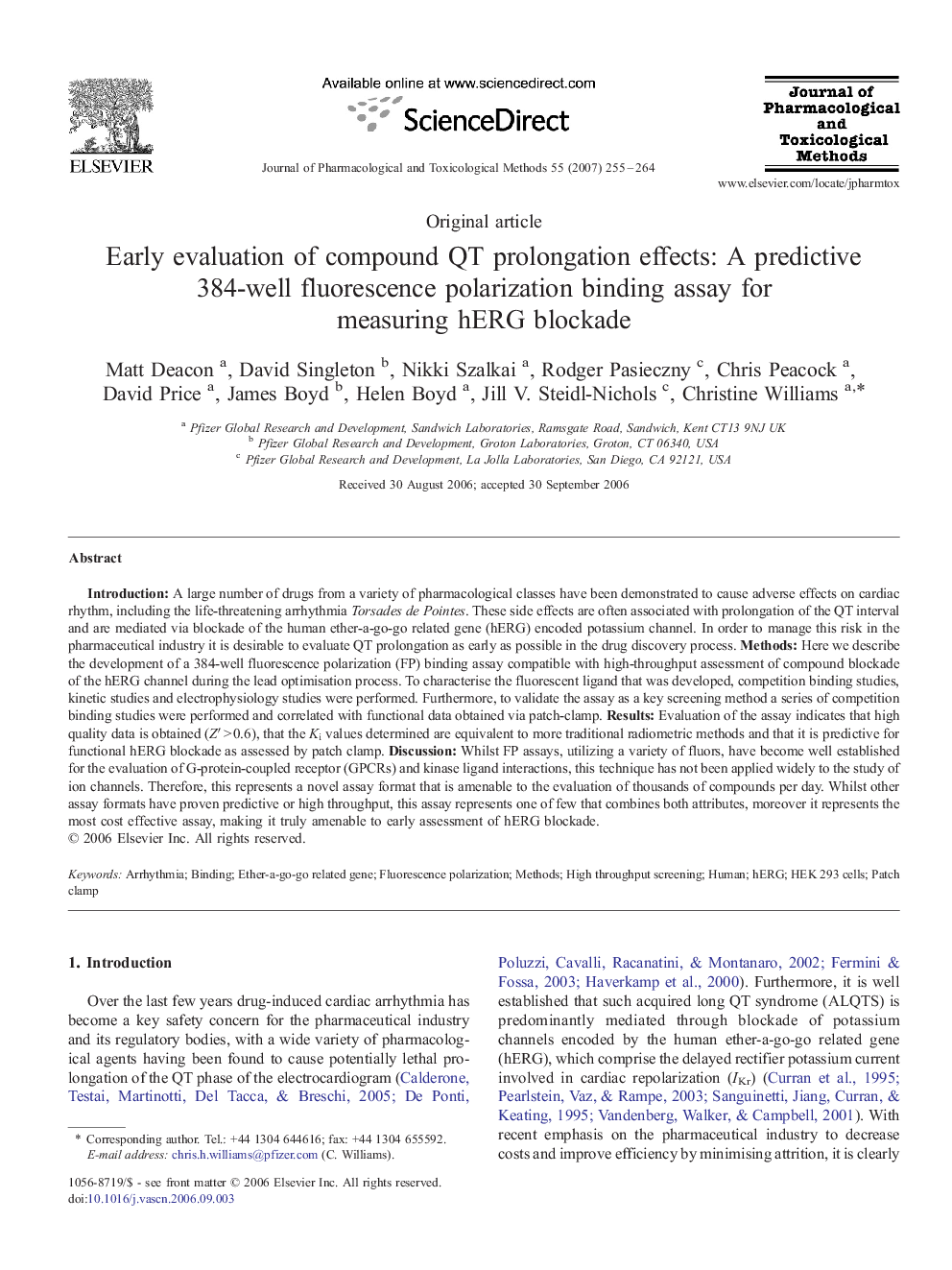| Article ID | Journal | Published Year | Pages | File Type |
|---|---|---|---|---|
| 2550240 | Journal of Pharmacological and Toxicological Methods | 2007 | 10 Pages |
IntroductionA large number of drugs from a variety of pharmacological classes have been demonstrated to cause adverse effects on cardiac rhythm, including the life-threatening arrhythmia Torsades de Pointes. These side effects are often associated with prolongation of the QT interval and are mediated via blockade of the human ether-a-go-go related gene (hERG) encoded potassium channel. In order to manage this risk in the pharmaceutical industry it is desirable to evaluate QT prolongation as early as possible in the drug discovery process.MethodsHere we describe the development of a 384-well fluorescence polarization (FP) binding assay compatible with high-throughput assessment of compound blockade of the hERG channel during the lead optimisation process. To characterise the fluorescent ligand that was developed, competition binding studies, kinetic studies and electrophysiology studies were performed. Furthermore, to validate the assay as a key screening method a series of competition binding studies were performed and correlated with functional data obtained via patch-clamp.ResultsEvaluation of the assay indicates that high quality data is obtained (Z′ > 0.6), that the Ki values determined are equivalent to more traditional radiometric methods and that it is predictive for functional hERG blockade as assessed by patch clamp.DiscussionWhilst FP assays, utilizing a variety of fluors, have become well established for the evaluation of G-protein-coupled receptor (GPCRs) and kinase ligand interactions, this technique has not been applied widely to the study of ion channels. Therefore, this represents a novel assay format that is amenable to the evaluation of thousands of compounds per day. Whilst other assay formats have proven predictive or high throughput, this assay represents one of few that combines both attributes, moreover it represents the most cost effective assay, making it truly amenable to early assessment of hERG blockade.
